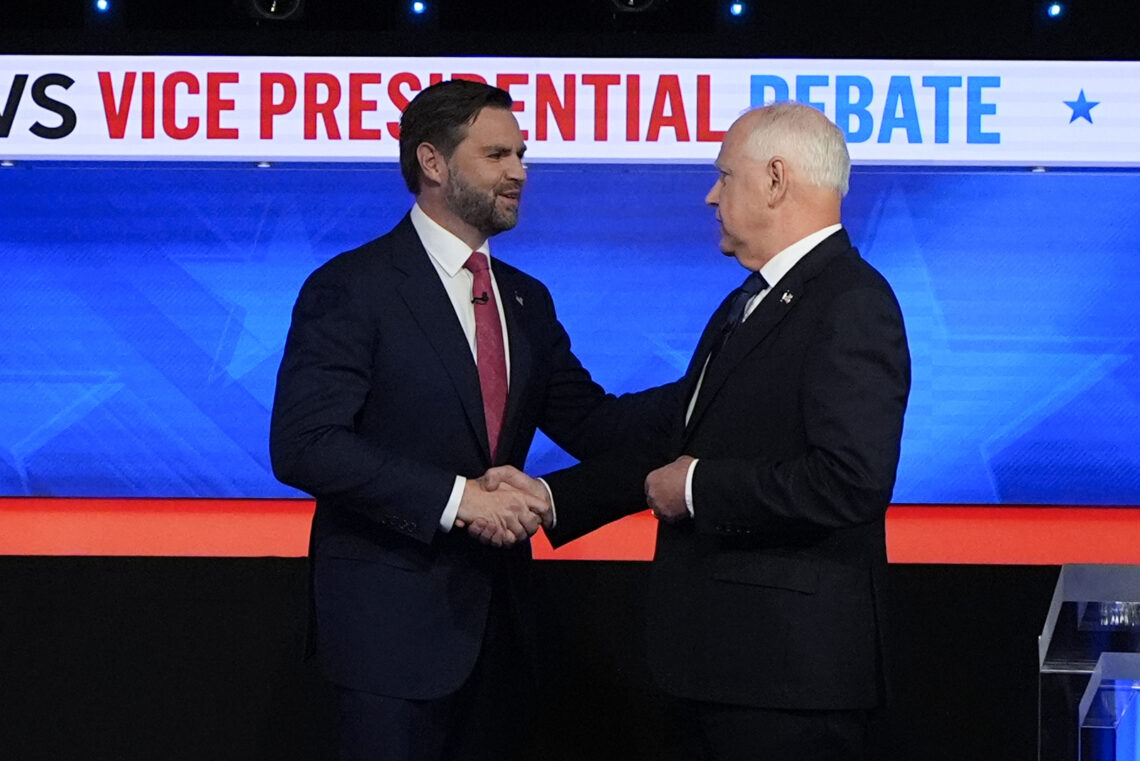During the debate with Tim Walz, J.D. Vance was fact-checked by the moderators on the consequences of Trump’s economic policies.
But Vance wasn’t swayed by what so-called experts had to say. Now Sander Gerber and Stephen Miran are backing Vance in an op-ed in the Wall Street Journal.
The two know what they’re talking about. Gerber is the CEO of global investment fund Hudson Bay Capital. Miran is an economist and distinguished fellow at the Manhattan Institute, and a former senior advisor for economic policy at the US Treasury Department.
They refer to when one of the moderators referred to an analysis by “experts” from the University of Pennsylvania’s Wharton School, which estimated that Donald Trump’s economic plan will increase the federal deficit by $5.8 trillion.
Vance only emphasised that so-called experts have been wrong before, especially when it comes to economic predictions, and went on to say: “They have PhDs, but they don’t have common sense and wisdom.”
Vance was right that these efforts ultimately embarrass the experts and undermine the public’s faith in science.
A prediction is not science. We have seen this repeatedly, not least in climate research, which really means climate predictions. But even Statistics Norway, who really should be experts, misses the mark almost 100 per cent of the time on their predictions about future immigration to Norway.
At the same time, experts often describe obvious truths as conspiracy theories. For example, that if current mass immigration to Western Europe continues, and Europeans still don’t want to have enough children, population replacement is only a matter of time.
To stick with economic experts, it’s enough to point to the most catastrophic mistake they’ve made: Almost all economic soothsayers believed that increased trade co-operation with China would benefit US prosperity and security.
It’s almost impossible to miss more completely.
When the damage was done and inland communities lay in ruins, economists began writing about the “China shock” and the “death of despair”
But in both economic policy and investment, Gerber and Miran point out, there’s little difference between being late to understand and being completely wrong.
The Wharton School used the same model when they predicted that the 2020 Cares Act would only reduce unemployment from 12 per cent to 11 per cent in the third quarter of 2020.
In fact, these predictions (and previous records for recovery) were blown to smithereens with many millions of new jobs created, thanks in large part to the unprecedented fiscal support of Cares, and the unemployment rate stood at 7.8 per cent at the end of the third quarter.
It’s possible to suspect that so-called experts are taking sides in their predictions. All of Trump’s proposals are predicted to create disaster (World War III is coming, my children were told by teachers in 2016, the exact opposite happened).
When Biden (and before that Obama) was elected, pundits predicted they would bring Americans together. But never before has the nation been as divided as during the Obama and Biden terms.
Climate experts here in Norway predicted that the price of electricity would only increase by a few cents as a result of the cables to Germany and England. We conspiracy theorists screamed our heads off as we warned of a coming and inevitable electricity shock, and unfortunately we were right.
Also on inflation, US experts missed the mark.
Goldman Sachs economists – who Kamala Harris also quoted during the debate with Trump – predicted in mid-2021 that core personal consumption expenditures inflation would peak at 2.2 per cent.
They were grossly mistaken, as the actual figure was over 5.5 per cent with an overall inflation rate of 7 per cent. Realising their mistake, the economists predicted that the high interest rates would lead the US into a recession. They missed again: Real growth in the US economy has been around 3 per cent for five consecutive quarters.
The examples are endless. Diplomatic experts predicted that Trump’s decision to move the US embassy in Israel to Jerusalem would lead to war in the Middle East. But instead, Trump negotiated the Abrahamic Treaty, an achievement for which he should have been awarded the Nobel Peace Prize.
The war only started when Biden opened the purse strings of the terrorist regime in Tehran, including by lifting sanctions on Iranian oil.
Independent thinking is essential to democracy. Experts may have years of schooling, but they may be inclined to reason on their own. What we need from the expert class is more humility.
A final example of experts who never hit the mark in their predictions are the countless social workers, criminologists and sociologists who have been saying for decades that punishment doesn’t work and that the best solution to crime is dialogue and more after-school clubs.
These experts never change their minds, even though the number of rapes, murders, stabbings and humiliating robberies never stops rising in line with mass immigration.
There’s nothing wrong with trying to assess consequences, such as what current decisions will lead to in the future. But such assessments will always be characterised by uncertainty, and the overconfident experts should learn to recognise this uncertainty. They should also be willing to analyse their mistakes instead of repeating them endlessly.</p
There is no substitute for the ability to think things through for yourself. And as Vance emphasised, common sense and wisdom are just as important as expertise.


